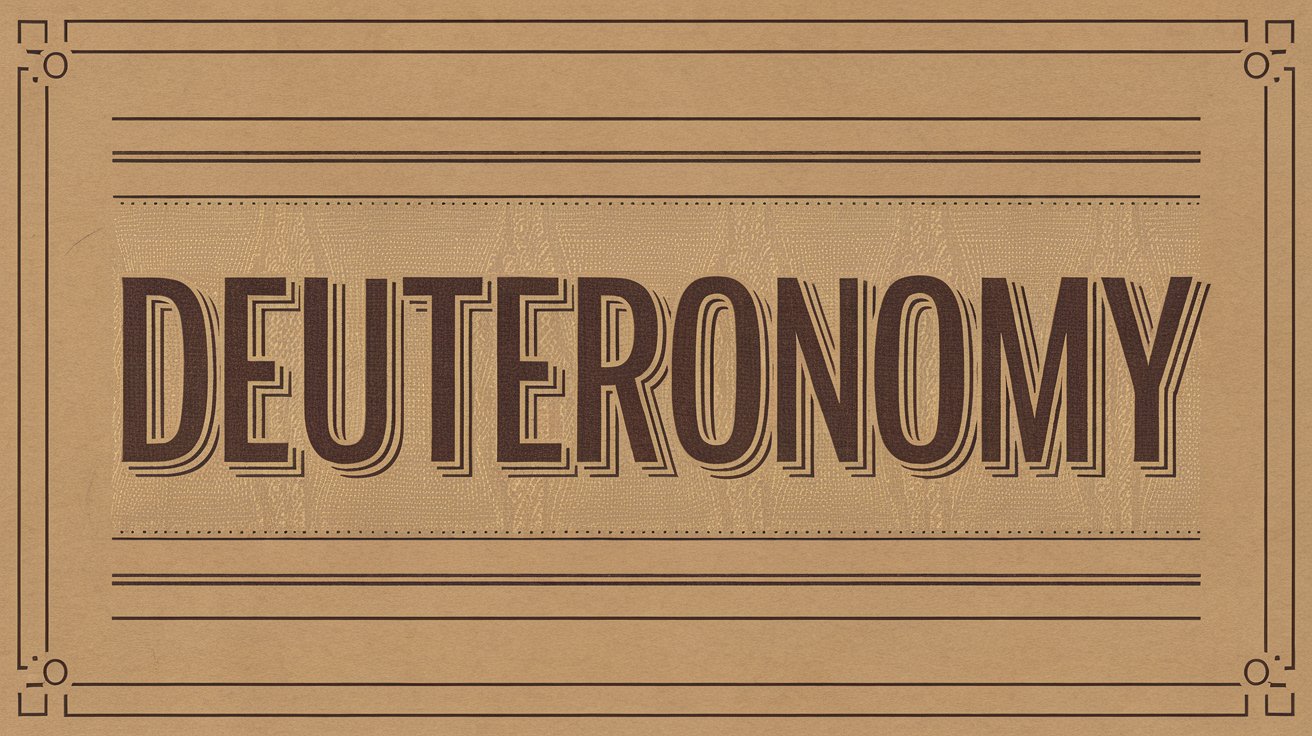When Justice Gets Personal
What’s Deuteronomy 25 about?
This chapter tackles some of the most intimate aspects of justice – from courtroom beatings to family obligations to honest business dealings. It’s Moses laying out how God’s people should handle conflict, protect the vulnerable, and maintain integrity in their daily lives.
The Full Context
Picture this: Moses is giving his final speech to a nation about to enter the Promised Land. They’ve been wandering nomads for forty years, but now they’re about to become settlers, farmers, and city-dwellers. They need laws that work in settled society – not just desert survival rules. Deuteronomy 25 comes near the end of Moses’ great farewell address, where he’s covering the practical nuts and bolts of living as God’s covenant people.
The broader context of Deuteronomy is crucial here. This isn’t just random legal code – it’s covenant renewal. Moses is essentially saying, “Remember who you are and whose you are as you build this new society.” The laws in this chapter address three critical areas: judicial punishment, family responsibility, and commercial integrity. Each reflects core values that should permeate Israelite society: justice tempered with mercy, protection of the vulnerable, and absolute honesty in dealings with others.
What the Ancient Words Tell Us
The Hebrew word for “dispute” in verse 1 is riv, and it’s more loaded than our English suggests. This isn’t just any disagreement – it’s a formal legal controversy that threatens community harmony. When Moses says they should “go to court,” he’s using mishpat, which means not just judgment but the whole process of seeking justice and restoration.
Grammar Geeks
The phrase “forty blows” uses the Hebrew arba’im, but notice the text immediately adds “he must not exceed this.” The rabbis later interpreted this as 39 lashes maximum – better to err on the side of mercy than accidentally break God’s law by miscounting!
The punishment itself reveals something beautiful about biblical justice. The word for “beat” is nakah, which can mean strike but also “to touch” or “reach.” The idea isn’t brutal vengeance but measured correction that preserves human dignity. That’s why there’s a limit – even wrongdoers remain image-bearers of God.
What Would the Original Audience Have Heard?
When ancient Israelites heard these laws, they would have immediately contrasted them with surrounding cultures. Assyrian and Babylonian law codes were often brutal and disproportionate. A thief might lose a hand; a false witness might be executed. But Moses is saying something revolutionary: “Even criminals retain their humanity.”
The limit of forty lashes wasn’t arbitrary – forty was a number of completion in Hebrew thought (think forty days of rain, forty years in the wilderness). But by capping punishment at just under that number, the law was saying, “Justice, yes – but never complete destruction of a person’s dignity.”
Did You Know?
Archaeological evidence shows that ancient Near Eastern law codes rarely protected the rights of criminals during punishment. The Israelite law requiring punishment “in the presence of the judge” was actually quite progressive – it prevented abuse and ensured accountability.
The agricultural imagery in verse 4 would have resonated powerfully with a people transitioning from nomadic life to farming. “Don’t muzzle an ox while it’s treading grain” wasn’t just about animal welfare – it was about fundamental fairness. If even animals deserve their share of what they’re working to produce, how much more should human workers be treated justly?
Wrestling with the Text
Now we get to the part that makes modern readers squirm: the levirate marriage law. If a man dies childless, his brother should marry his widow to “raise up the name” of the deceased. This feels weird to us, but we’re missing the ancient context entirely.
In a world without social security, life insurance, or women’s property rights, a childless widow faced destitution. The Hebrew word yabam (meaning brother-in-law’s duty) wasn’t about romance – it was about survival and dignity. The phrase “his name shall not be blotted out from Israel” reveals what’s really at stake: legacy, inheritance, and a woman’s security.
Wait, That’s Strange…
The sandal ceremony seems random until you realize that in ancient Israel, removing a shoe was how you transferred property rights (see Ruth 4:7-8). The brother-in-law is literally “walking away” from his responsibility – and the community witnesses it.
The public shaming element – spitting in his face and calling his house “the house of him whose sandal was removed” – seems harsh until you realize what’s happening. This man is abandoning a vulnerable woman to poverty. The community needs to know he’s someone who shirks his moral obligations.
How This Changes Everything
The final section about honest weights and measures might seem like an anticlimax after all that drama about beatings and marriages, but it’s actually the climax of the chapter. The Hebrew word for “abomination” (to’evah) is strong language – the same word used for the most serious moral offenses.
Why is a dishonest business scale such a big deal? Because it reveals character. Someone who cheats in the marketplace will cheat everywhere else. The person who shortchanges customers is the same person who would abandon a widowed sister-in-law or abuse a criminal during punishment.
“Justice isn’t just about big courtroom moments – it’s about the integrity you show when no one’s watching you weigh out grain.”
Notice how the chapter ends with a promise: “so that your days may be long in the land the Lord your God is giving you.” This isn’t just about individual blessing – it’s about societal sustainability. Communities built on justice, mercy, and integrity last. Those built on exploitation and corruption collapse.
Key Takeaway
True justice isn’t just about punishment – it’s about preserving human dignity while protecting the vulnerable and maintaining community trust through radical honesty in all our dealings.
Further Reading
Internal Links:
External Scholarly Resources:


